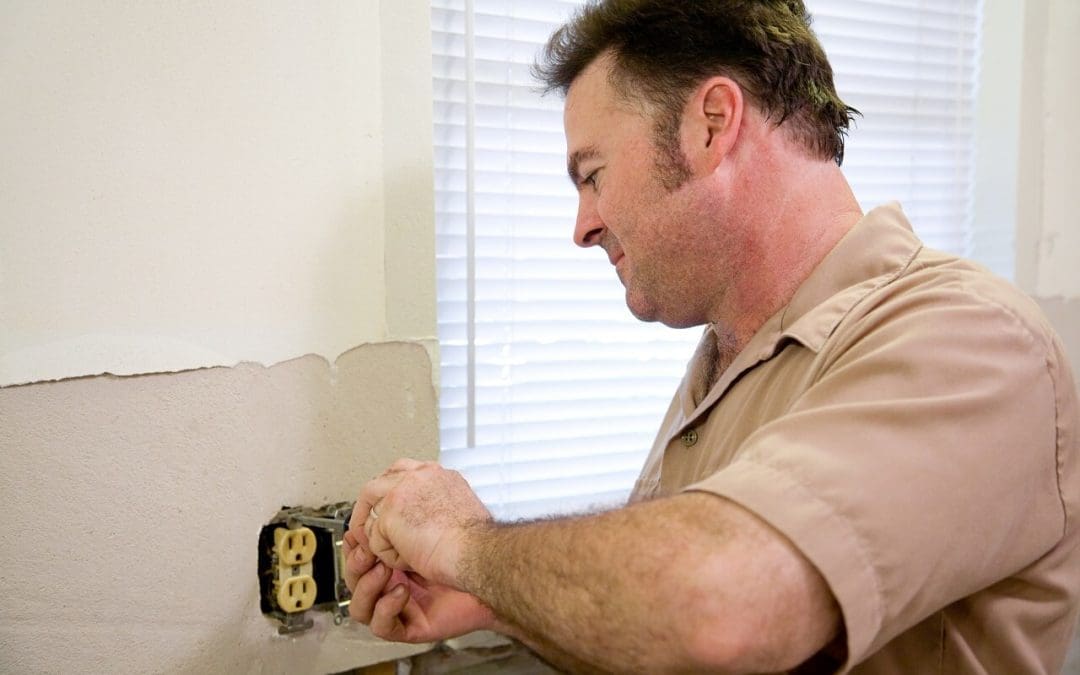Electricity is one of the most essential elements of modern life, powering everything from your morning coffee maker to the heating system that keeps your family warm. While it enhances our lives, it also poses risks if incorrectly handled. As a homeowner, knowing the basics of electrical safety helps protect you, your family, and your property from potential hazards.
Recognizing Common Electrical Hazards
Understanding where potential dangers lie is the first step to creating a safer home. Faulty wiring, overloaded outlets, and outdated electrical panels are among the leading causes of residential fires. Pay attention to signs of trouble like flickering lights, unusual burning smells, or circuit breakers that trip repeatedly. These are your home’s way of telling you something isn’t right.
Even small appliances can pose risks if handled carelessly. For instance, using a damaged cord or overloading a power strip might seem harmless, but these actions could spark serious issues. By staying vigilant, you’ll prevent problems before they escalate.
Best Practices for Everyday Electrical Safety
Safety starts with small, consistent habits. Always unplug appliances when they’re not in use, especially those that generate heat, like toasters or space heaters. Avoid running electrical cords under rugs or behind furniture where they might overheat or get damaged unnoticed.
When using extension cords, treat them as temporary solutions, not permanent fixtures. For areas that require frequent power, like home offices or entertainment centers, install additional outlets with the help of a licensed electrician.
Protective devices like surge protectors can shield your electronics from power surges, but they don’t eliminate all risks. Regularly inspect your devices and wiring to confirm they’re in good condition and compatible with your home’s electrical capacity.
The Role of Ground Fault Circuit Interrupters (GFCIs)
Ground Fault Circuit Interrupters (GFCIs) are critical safety devices that can prevent electrical shocks. These outlets detect imbalances in the electrical current and shut off power before harm can occur. GFCIs are especially important in areas with moisture, such as bathrooms, kitchens, and outdoor spaces.
If your home lacks GFCI outlets in these critical areas, it’s time to consider an upgrade. These devices are a simple yet powerful way to ensure your family’s safety around electricity.
Why Upgrading Your Electrical System Matters
Older homes often have outdated electrical systems that may not meet today’s demands. If your home was built decades ago, its wiring might struggle to support modern appliances and devices. An upgrade improves safety, enhances energy efficiency, and makes sure your home meets current electrical codes.
Rewiring or installing a new electrical panel can seem like a significant investment, but it’s worth making. Beyond preventing potential hazards, it can increase your home’s value and provide peace of mind.
The Importance of Professional Inspections
Electrical issues aren’t always obvious. Hidden problems, such as frayed wiring within walls or improperly installed outlets, can go unnoticed until they cause damage or pose a risk. That’s why regular inspections by a qualified electrician are essential. A professional can identify issues you might miss and recommend solutions tailored to your home.
Consider scheduling an inspection every few years or after significant events like a renovation or purchasing a new home. This proactive step can save you from repairs and keep your home safe.
Follow these guidelines and stay proactive to make your home safer for everyone. Electrical safety doesn’t have to be intimidating—it’s about building habits and seeking professional help when needed. With the proper knowledge, you’ll have the confidence to enjoy the convenience of electricity without compromising safety.
FAQs About Electrical Safety
How can I tell if my home has outdated wiring?
Look for signs such as frequent tripped breakers, flickering lights, and warm outlets. If your home still has knob-and-tube or aluminum wiring, it’s time to upgrade.
What should I do if an appliance sparks when plugged in?
Immediately unplug the appliance and avoid using it. Check for damaged cords or signs of wear. If the issue persists, consult a professional to assess the appliance and your home’s electrical system.
Are surge protectors enough to protect my electronics?
Surge protectors offer some protection against power surges but aren’t foolproof. Install whole-home surge protection for enhanced safety for sensitive or high-value electronics.
When should I replace my electrical panel?
If your panel is over 20 years old or unable to support your home’s energy demands, it’s likely time for a replacement. Speak with an electrician to evaluate your system’s capacity and recommend a suitable upgrade.
Why do my circuit breakers keep tripping?
Tripped breakers usually indicate overloaded circuits, short circuits, or ground faults. Unplug devices and reset the breaker. If the issue continues, call an electrician to investigate.
American Dream Home Inspections offers inspection services to homebuyers and sellers in Northern and Central New Jersey. Contact us to request an appointment.

